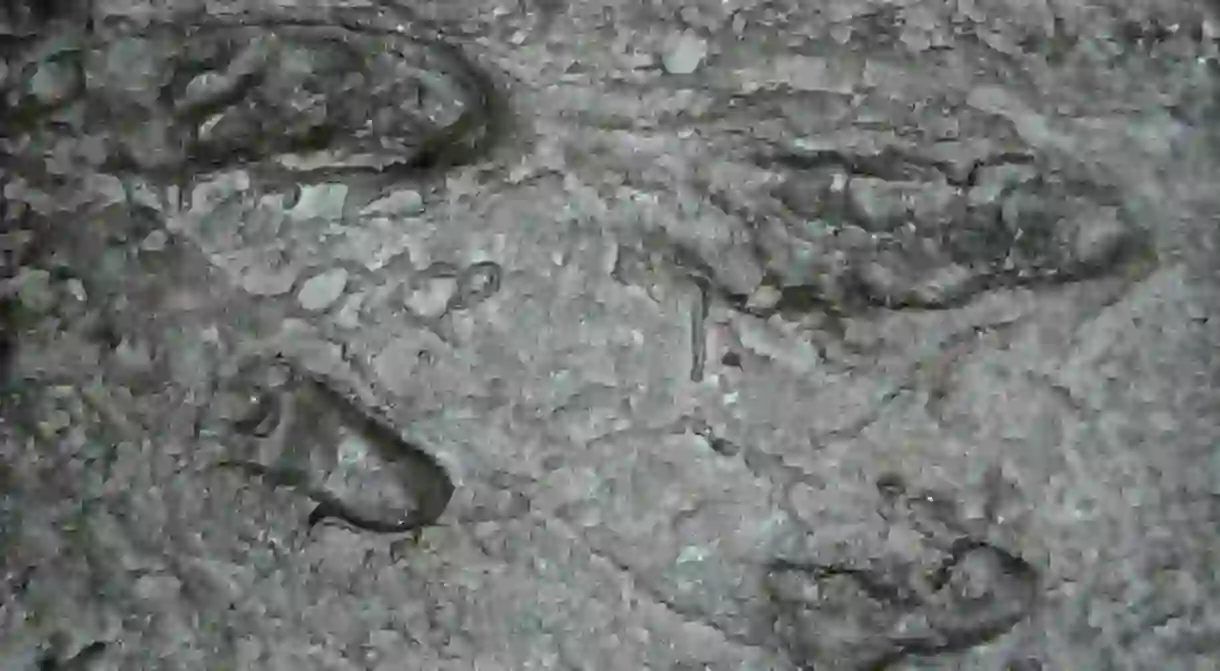This 6-Million-Year-Old Discovery in Greece May Rewrite Human History

A set of 6-million-year-old early human footprints discovered in Greece may force scientists to rethink human history and challenge the established theory that Africa is the cradle of humanity, where early humans stayed isolated for millions of years before spreading to Europe and Asia.
Located in Trachilos, near Kissamos, on the western part of the island of Crete, the footprints were first spotted by Polish paleontologist Gerar Gierlinski in 2002, when he was on holiday on the island. Fast forward to 2010, when he returned to the site with his colleague Grzegorz Niedzwiedzki to further investigate.
Discovering a total of 29 footprints in total, measuring between 9.9 to 22.3 cm in length, the paleontologists concluded that these were left by two or more bipeds. According to them, the prints share similarities with human footprints, notably the shape and toe alignment and the fact that the prints do not show traces of claws. Furthermore, the presence of a protuberance at the heel, called the calcaneum, proves that the footprints don’t belong to primates. However, since the soil where the footprints were made is very sandy, the footprints are not very precise.
To date this revolutionary discovery, they studied the marine micro-organisms, foraminifera, fossilized in the same sediment layer where the footprints were found. Foraminifera are great tools for dating purposes as they evolve very rapidly. Once the stage of evolution was determined, researchers were able to evaluate that the footprints were between 3.5-8.5-million-years-old. The surrounding sedimentary strata offered another clue.

About 5.6-million years ago, at the end of the Miocene period, the whole Mediterranean dried up, giving a clear, easily identifiable sediment layer. The footprints were located just below it, allowing the scientists to date them at about 5.7-million years ago. At that time, Crete was not an island and was connected to Greece’s mainland. Since the middle of the 20th-century, researchers believe that the cradle of humanity is in Africa, where the oldest and most spectacular discoveries have been made, such as the Toumai Skull, Orrorin tugenensis, discovered near Lake Baringo in western Kenya, the Ardipithecus of Ethiopia and of course, the Australopithecus in South and East Africa.
But if the Trachilos discovery is confirmed, the research community will have to rethink their current knowledge and recognize that hominins (members of the human lineage) also roamed in the Mediterranean basin 5.7-million years ago.
This potentially revolutionary discovery comes a couple of months after the discovery of a seven-million-year-old Greek and Bulgarian fossil tooth from a primate that a team of paleontologists reinterpreted as an early human, saying that humans started to evolve in Europe long before they did in Africa.
This left many scientists skeptical. Indeed, many believe the Trachilos footprints may have been made by an undiscovered primate that may share foot similarities with humans. If, however, the footprints are legitimate, we might have to rewrite the history books and rethink the African cradle of humanity theory.














